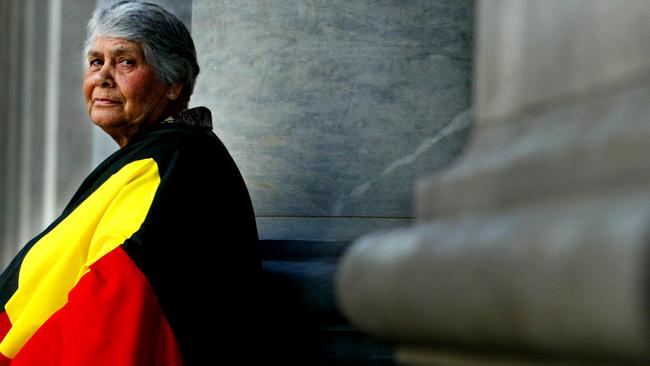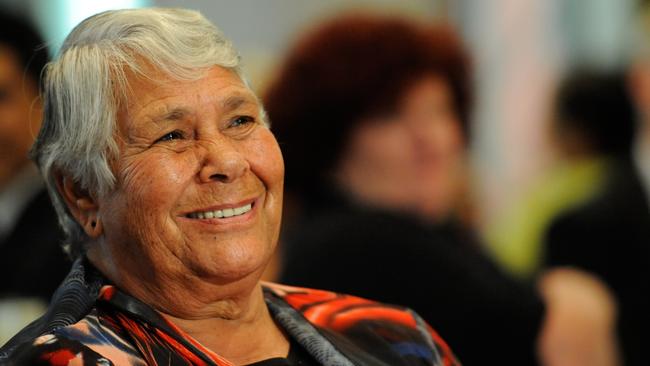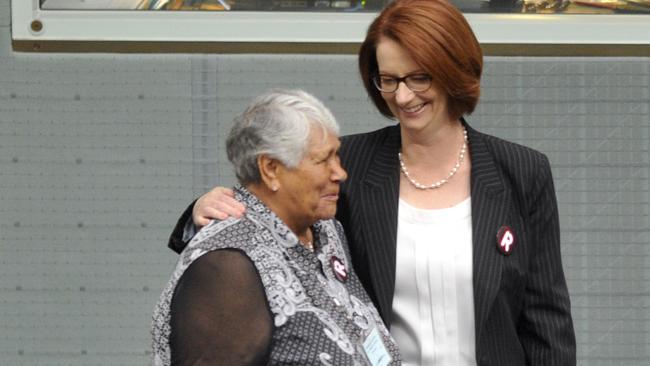Both sides of politics remember Lowitja O’Donoghue for her commitment to reconciliation
Indigenous rights advocate Lowitja O’Donoghue has been remembered on both sides of politics for her commitment to reconciliation.

Lowitja O’Donoghue, the Indigenous rights advocate who helped convert Eddie Mabo’s High Court victory into the Native Title laws that changed Australia, has been remembered on both sides of politics for her commitment to reconciliation.
“Dr O’Donoghue had an abiding faith in the possibility of a more united and reconciled Australia,” Prime Minister Anthony Albanese said on Sunday after the announcement of her death.
Opposition Leader Peter Dutton said: “Lowitja will be remembered for advancing recognition, furthering the cause of reconciliation and fighting for Indigenous rights and representation. For these reasons she was renowned, widely respected and rightly acknowledged”.
Indigenous Australians Minister Linda Burney said Dr O’Donoghue’s leadership and tenacity had been an inspiration for generations of Aboriginal and Torres Strait Islander Australians “including myself”.
“I had the great honour and privilege of working with Lowitja when I was appointed to the National Council for Aboriginal Reconciliation in 1997,” she said.
“She was a truly extraordinary leader. Lowitja was not just a giant for those of us who knew her, but a giant for our country. O’Donoghue was one of the most remarkable leaders this country has ever known.”

Opposition Indigenous Australians spokeswoman Jacinta Nampijinpa Price said: “I am very sorry to hear about the passing of Dr O’Donoghue. She was a remarkable woman, a staunch advocate for her people, firm in her beliefs, and worked tirelessly to unite Australians and create understanding.”
Dr O’Donoghue was born in the bush in central Australia, a domestic servant in her teens and an unstoppable force in Indigenous affairs by middle age. She had the ear of prime ministers, addressed federal cabinet and was a household name in the 1990s as inaugural chair of the Aboriginal and Torres Strait Islander Commission.
Her death on Sunday at 91 prompted analysis of ATSIC’s strengths and demise. There was consensus among those who spoke about the abolished national body that Dr O’Donoghue’s tenure from 1990 to 1996 was productive and positive.
It is one reason why Cape York Partnerships founder Noel Pearson considers Dr O’Donoghue “our greatest leader of the modern era”.
“These were ATSIC’s best years,” Mr Pearson said of Dr O’Donoghue’s time at the helm.
“They were years of great coherence in Indigenous affairs, before the national commission’s subsequent poor leadership played into the hands of the Howard government’s antipathy to all things Indigenous.
“There were two ATSICs, one under Lowitja and the other after.

“Without Lowitja’s ATSIC we would never have defended Eddie Mabo’s great legacy and negotiated the Native Title Act and Indigenous Land Fund.”
Writing in The Australian on Monday, veteran Indigenous activist and public intellectual Marcia Langton recalls that when ATSIC was established, many considered it a radical and unworkable measure.
“But until she stepped down as chair in 1996, its achievements were groundbreaking and overwhelmingly beneficial,” she writes.
“Under her leadership, mature and fruitful policy responses were the order of the day such as when the shocking revelations of the Royal Commission into Aboriginal Deaths in Custody required an Indigenous voice.”
It was during the ATSIC years that Dr O’Donoghue led negotiations with the Keating government in the wake of the landmark Mabo High Court ruling.
“There would be no Native Title Act without her leadership and wisdom,” Professor Langton writes. “She was the lead negotiator with Paul Keating’s government and led all involved to a resolution of revolutionary legal issues that has stood the test of time over three decades.”






To join the conversation, please log in. Don't have an account? Register
Join the conversation, you are commenting as Logout